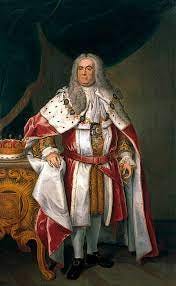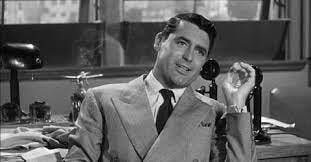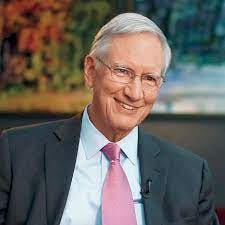The Prince of Impact
This 36-year-old has just landed two important-sounding roles. Now he just has to find out what he actually does. It's a familiar feeling for more and more employees
Harry: I can do that – whatever it is (pic credit: New York magazine)
Everyone knows what a Prince is. It’s harder to say what a Prince does. They are born with a title, but often spend a lifetime searching for a role.
Well, Prince Harry, the Duke of Sussex, has now obtained two new titles. He is to be Chief Impact Officer at a start-up called BetterUp [sic] and Commissioner at the Aspen Institute’s Commission on Information Disorder.
Do those titles help answer the second part of our opening questions – the what’s he do/what’s his role thing? Not according to the often acerbic comments that followed the news of those appointments. New York magazine said Harry’s résumé risks becoming ‘increasingly amorphous’ and he’d ‘collected two of the most vague and fancy-sounding corporate titles out there’.
We’ve had hard words to say about the state of CV/résumé writing. When this writer found himself interviewing twentysomethings for a junior digital role, he was bewildered by the pages and pages of experience clocked up by the candidates, with one important-sounding role following another at a suspiciously fast rate.
You also come across a lot of silly, made-up and inflated job titles, especially if you spend time on Linked In. We could easily have fun having a go at them.
But here’s a better idea. Let’s not.
To start with, some job titles that prompted scorn at first then became embedded in organisational culture. Here’s an example. In the 18th century, the British Government was made up gentlemen of rank who advised the king. They were equals. But one, Robert Walpole, began to assume more and more leadership responsibility. His detractors alleged he was acting as if he weren’t just a minister, but a Prime Minister. The title stuck and in time became an honorific (see below).
Walpole: he’ll be calling himself ‘King’ next
Job nomenclature was remarkably stable in the 20th century. But in the internet age, new kinds of companies required new kinds of jobs and new sorts of titles. Consultants, part-timers and contract workers proliferated, leading to the rise of the multi-hyphen career. It’s only a matter of time before some people’s business cards come in two volumes.
Well, we’re all for minting new words and trying out new expressions. The good ones will survive. Maybe Impact Officer is one of them – although part of me frets that if you have to put ‘impact’ in your title, it raises questions. Isn’t the basic point of any job to make an impact? Otherwise, why does it exist?
I’ve come across peaches of titles in my time. I once knew an adman who was Creative Director of the World – the ultimate omnificent role, you’d think, until he had to admit he was somewhat lower down the ladder than Creative Director of North America.
Thankfully, I turned down the opportunity to become Head of Ideas when we were running out of variations on editing and new business roles (see below).
But the one job I’d always coveted was that conjured up by the writer P J O’Rourke when Rolling Stone magazine was pestering him to come up with a title they could put next to his name on the masthead as he travelled around the world filing reports from various troublespots.
O’Rourke chose Investigative Humorist. Never bettered.
7 more eye-catching job titles
Chief Magic Officer (strategy/planning consultancy)
Head of Taste (chocolate company)
Accidental Hotelier (resort owner)
Security Princess (‘White Hat Hacker’ at Google)
Director of First Impressions (Receptionist)
Hairapist (Hairdresser)
Space Travel Agent (books trips on commercial spacecraft).
Google’s Parisa Tabriz: she really is a Princess
And 7 to make your toes curl
Educator (sales executive)
Rockstar (software developer)
BD Ninja (business development executive)
Culture Operations Manager (HR executive)
Vibe Manager & Head of All Things Awesome (Head of HR)
Human Resources Executive (personnel manager)
Happiness Hero (customer services person).
With thanks to Ongig.
Educator or sales person?
Know any good job titles?
And a small style point. All proper newspapers and magazines prefer to put job titles in lower case. There’s a saying in sub editing circles: ‘only God takes caps’ (see below).
Organisations do the opposite. So you get Junior Assistant Vice President for Sales and Customer Service (Automotive Division). On the page, it looks bombastic and self-important. Those capital letters have the effect of making the reader sit up stiffly in their seat and straighten their imaginary tie. Is that the effect you want?
Why editors are like God
I joined a new company to edit a magazine. They offered me the title Managing Editor. I was horrified and almost walked away.
They were puzzled. As managers and directors themselves, they thought their proposed title sounded more important than mere ‘editor’.
That’s not how it works in journalism. The rule is: the simpler the better. I’ve know writers, some of them distinguished, who are happy to go through life called, simply, ‘reporter’. Others aspire to be editor: and once you have that title, that’s it. Anything thereafter is irrelevant.
Editors are indeed like God. You don’t qualify the word: you’re not Managing God, Executive God or God-in-Chief. You’re just The Editor. Or ‘God’.
As I was one of these for many years, I’m glad to see that editorial director has lately become quite established. But you can always decide an editorial director is superfluous. You only every replace editors: it’s unthinkable to scrap the title.
Rupert Murdoch once replaced one of his editors and gave him the title ‘Editor Emeritus’ instead. The gentleman in question was flattered, but asked the proprietor exactly what it meant.
‘It means,’ said Murdoch, ‘that you’ve been fired and you deserve it’.
Call for HR! – sorry, the Culture Operations Manager.
Handsome, dashing, godlike: Cary Grant as a typical editor in His Girl Friday
I’m just not feeling myself today (or any other day)
I’ve just finished a long call with a Relationship Manager at my bank. Instead of thinking about numbers, I find myself thinking about words – especially the pronoun we use to address another person.
You mean – you? I do. Except when you are being addressed by a member of the customer contact corps in the UK, you are no longer you. You are yourself.
Can I just take the date of birth for yourself? I see we last spoke to yourself on February 22nd.
Let’s take this into the grammar shed and have a tinker.
The principal use of ‘yourself’ is when ‘you’ are both subject and object. We say ‘you’ll drive yourself mad’, not ‘you’ll drive you mad’. But there’s a less clearcut usage, too, when ‘yourself’ is used for emphasis: ‘So you do your tax returns yourself?’
I’m not sure my bank’s customer service script satisfies either condition. But we won’t condemn them as wrong or sub-literate. As believers in usage and the evolution of language, we’ll instead propose a third use of ‘yourself’: as an honorific – a title that ‘conveys esteem, courtesy, or respect for position or rank when addressing or referring to a person’ [Wikipedia].
But the honorific may only be used when you are the object. So the speaker cannot say ‘could yourself give me your National Insurance number?’ But ‘what would the National Insurance number for yourself be?’ is not only permissible but, in the excruciatingly polite and often contorted language of modern customer service – desirable.
So glad we cleared that one up.
Anyone called ‘Yourself’ here?
Finally….what does the world’s leading management writer call himself?
When you become defined by your title, you become limited in terms of what you can do, or what others believe you are capable of. It is because of this that I gave myself the title ‘Transformation Architect’ when I joined the Tom Peters Company ... people have to ask, "What do you do?" My title stays the same, but my answer evolves over time, as I do.
Tom Peters
Sorry, Tom, what did you say you do again? Do check out what we had to say about people who aren’t architects who call themselves architects here.









From Nigel Massey: 'The funniest business card I came across was when the Creative Director of Foote Cone and Belding where I worked for years handed me his which under his name read’ Very Important Person ‘
Once again, great fun, Mark and I am genuinely in awe at your knowledge/research capacity for historical/cultural references.
But on ‘yourself’. Do you have no Irish friends or relations? It’s always ‘How’s yourself?’ or ‘What would yourself like?’ rather than ‘How are you?’ or ‘What would you like?’
Given, there are almost certainly, er, historical/cultural reasons for this usage. Ok, in the wrong context, it may not always strike the best note in print. But surely not so terrible in spoken English (given the countless variants that exist)? So maybe your customer service agent/happiness executive was being more authentic and less corporate-scripted than you thought?
Who knows? Wish I did.
Paul Marston, ex-national newspaper hack (non-formalised though widely understood title) and BA ‘comms director’. (Life would be so much easier if communications could just be directed.)